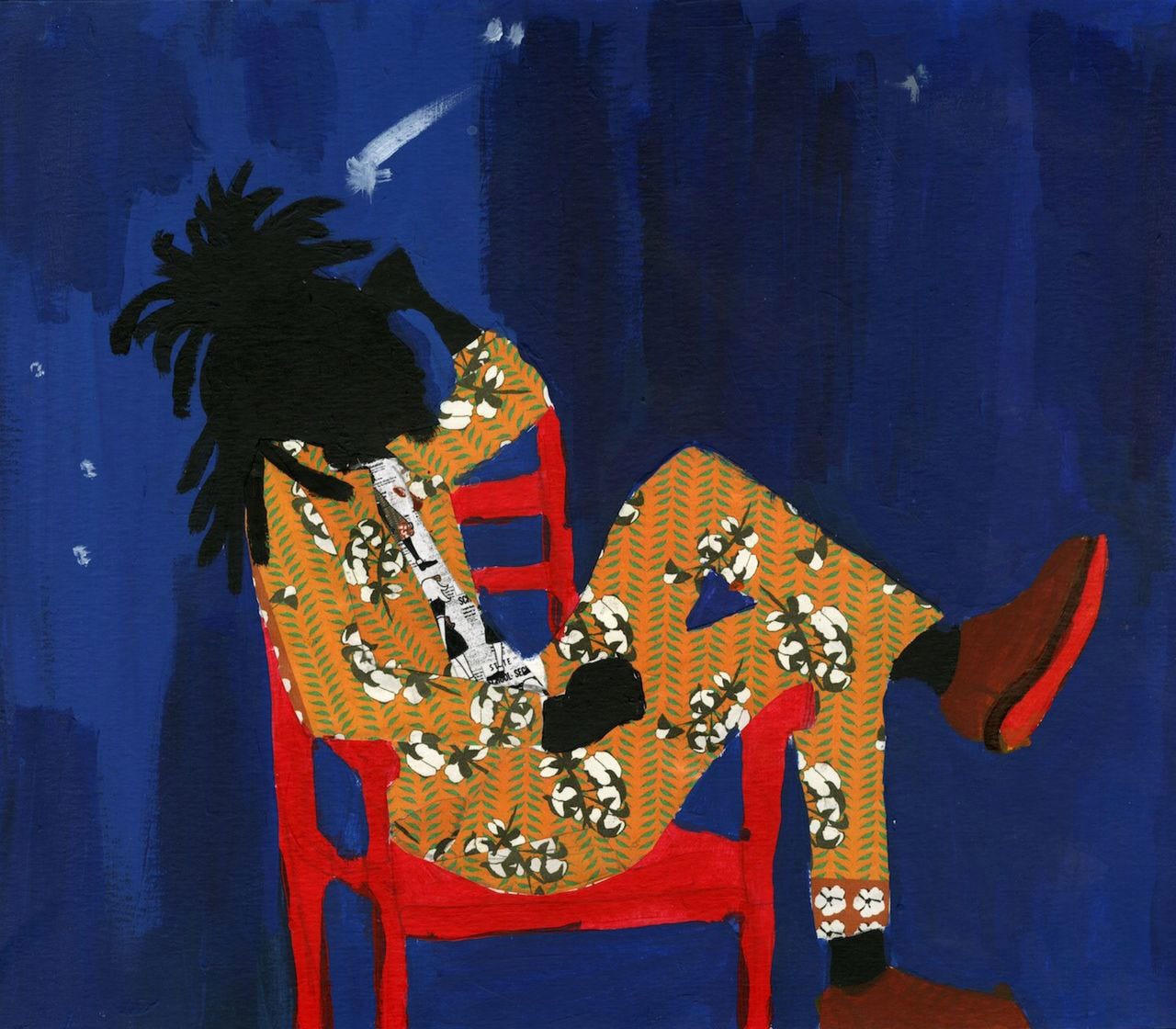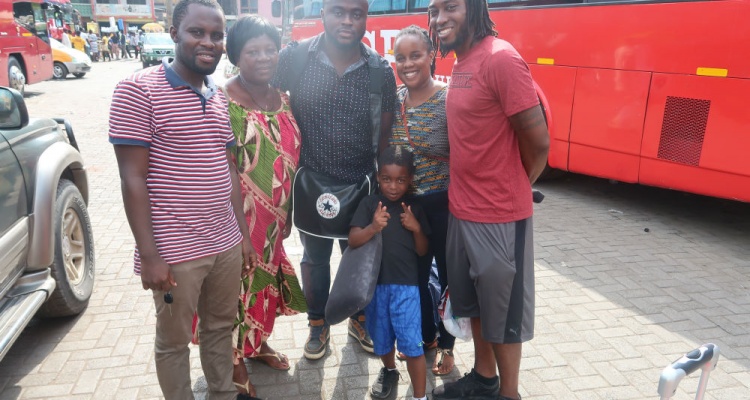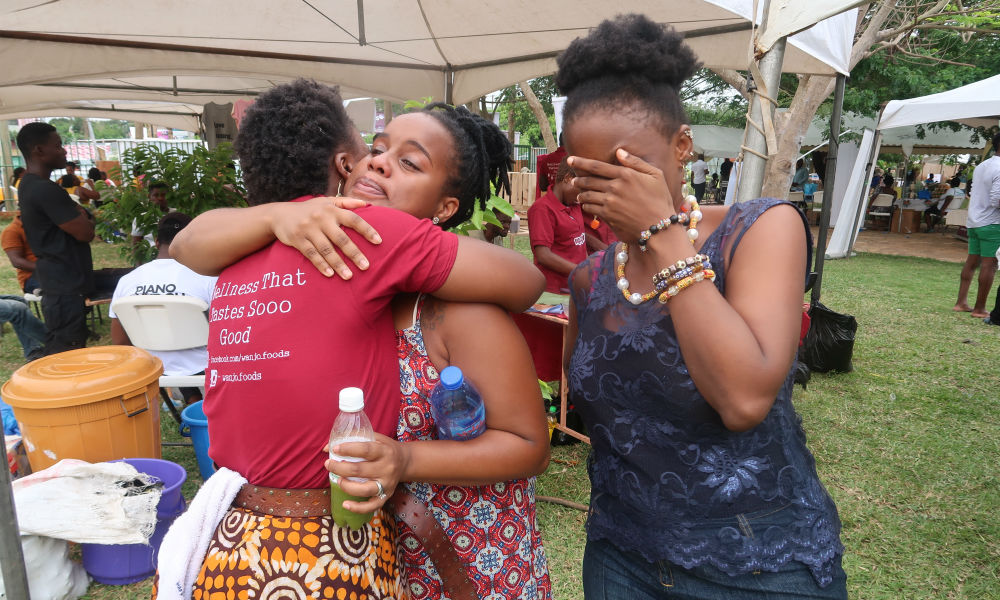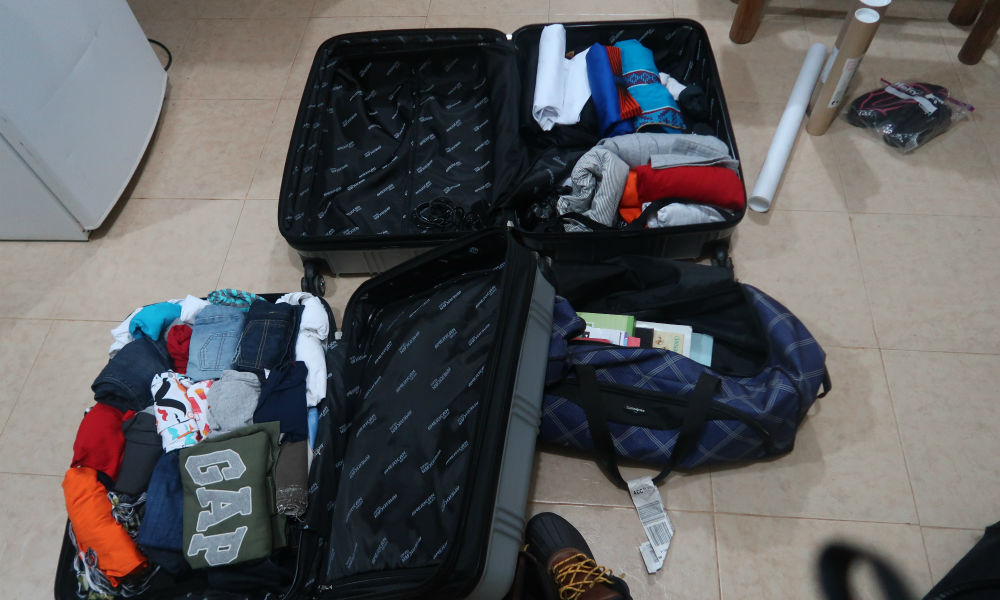Doobie Doo
Veteran
What Nobody Tells You About Moving to Ghana

Paul Boakye
Dec 28, 2019 · 12 min read


Nkrumah Memorial Park — First president of independent Ghana, West Africa.
I’ve always wanted to move to Ghana. I fell in love with the people and the place on my first visit there in 1989. My father had always told me that we were from the Gold Coast. The Gold Coast, he said, was where our people came from before the carry beyond. We had been brought to Jamaica on ships long ago, but we were Ashanti people, he said. I had no idea where in Africa the Gold Coast was exactly — until I landed in Ghana on that first trip.
“You are strong in face and black like us,” my host, Mister Yawson said. “You are Ashanti — Kumasi people.” That’s when the penny dropped. I have lived ever since with a dream of returning where, in going back, there would be no loss. I would never have physically relocated, however, had I not landed a dream job in Accra with a multinational advertising agency in 2011. Below are some of the things I’ve learned in my six years of living and working among Ghanaians. Here is what no one will tell you about moving to Ghana as an African-American, a person of Caribbean heritage, or anyone else for that matter.
1. Beware the Anansi-Style Tricksters
Brer Nansi had filled my childhood imagination with his playful trickery in a world full of magic. The way my father told these stories made me want to live in that paradise. These ancient tales from when I was a boy, remain my most enduring memories of idle days spent with my old man. Brer Nansi and his double-dealing trickery were likely the real catalysts for my ideas about moving to Ghana in the first place. However, the moment you land at Kotoka International Airport, you are not quite prepared for the kinds of tricksters poised to pounce and “chop your money,” as they say.
Friends often ask me if I miss living in Ghana. But for me, living in Ghana was extremely stressful. The longer I lived and worked in the country was the more I found the culture and character of its people guided by a kind of Machiavellian mindset that had me reminded of the duplicitous Iago in Shakespeare’s Othello. Everyone in Ghana is Godly. They go to church and pray every day. Yet like that crafty spider, Anansi, many people will tie you up in a web of lies and sinful deceit without a thread of guilt or any sense of moral consideration.
2. Don’t Fall Prey to the Land & Letting Scams
One of the first things you’ll want to do in Ghana is to find yourself somewhere to live. You might even have come with the idea of "); background-size: 1px 1px; background-position: 0px calc(1em + 1px);">building your dream home or setting up a business. You may have been warned about buying land from "); background-size: 1px 1px; background-position: 0px calc(1em + 1px);">unscrupulous real estate charlatans, but letting agents are just as much a bunch of untrustworthy hustlers. Young men standing on street corners, typically, hoping for the best of what the wind may blow.
There are too many stories of rental and real estate scams going on at any one time to keep count. You really do need to be extra vigilant, and very cautious, about to whom you hand your hard-earned cash when conducting business in Ghana. Some landlords demand up to three years’ rent in advance on residential lettings. Others see fit to request ten years’ payment upfront on commercial leases. You stand to lose a tidy sum if you hand your money to the wrong people. Always check and double-check and do your due diligence because the police won’t help you when the deal turns sour. You may even have to pay the “Po-Po” to investigate on your behalf.
3. Ethnic Conflicts Are Rife
After only a short time in the country, you begin to see that there is little trust between neighbouring folks, let alone between the various ethnic groups and clans. Each person has to be second-guessing the real intention of others, and the gap between what people say and what they will do. You begin to wonder how easily Ghanaians must have been duped into selling their fellow citizens into a transatlantic slavery in exchange for trinkets and useless shiny things.
You would be surprised today to witness how little Ghanaian chiefs, elders and leaders have learnt from their forebears’ role in the heinous Transatlantic Slave Trade. They will sooner sell their fellow countrymen down the Volta River as quick as shake hands with the nearest Chinaman — or practically any other non-black foreigner — all of whom are “white” to most Ghanaians. It is quite disturbing to see for us sons and daughters of the “carry beyond.”
We should like to believe that on the surface of things, this insistence in Ghana on peaceful coexistence actually stands for something akin to an unbreakable sense of unity. When you delve into the culture and the way people treat each other, however, nothing could be further from the truth. The Ashanti hate the Akan, who hate the Ewe, who despise the Fanti, and so it goes on.


On the Road to Kumasi photographed by Paul Boakye
4. Avoid Money-Hungry Businessmen Who Provide No Service
Soon you begin to learn that far too many Ghanaians will try to profit from that which they have not earned. Too many will beg, steal, and dupe you out of your hard-earned living, while others expend all of their energy trying to gain benefit from not providing a service.
Even when you take a business opportunity to a Ghanaian, he won’t run with it like a Nigerian might. More often than not, you find yourself having to push the Ghanaian businessman to take the initiative or to do what he has promised. Whereas the Lebanese, Chinese or Indian will spot a chance to make money in Ghana and be on it like a leech. The Ghanaian is saying, “maybe tomorrow,” and will rather complain that foreigners own everything in his country.
This laidback attitude is a striking difference that appears to lack creative thinking, but it’s not as if your average Ghanaian is lazy. On the contrary, a Ghanaian will quite often go the-long-way round to get a job done. Toiling all day in the beating sun, for example, when you or I might consider a hundred easier ways to make a living or to reach the same objective.
5. A General Lack of Creative Solutions
It’s quite bizarre, really, because Ghanaian children never seem to lack the ability to find creative solutions to existing problems. Up until about the time children reach adolescence, the hope in their eyes is one of the most endearing things about living in Ghana. But something changes at around puberty. These hopeful children suddenly turn into younger versions of the mindless adults they’ll become in later life. Again, it’s rather pitiful to witness, because it’s like someone turned out the lights. “Dumsor,” as the saying goes.
These adolescents then become like endless fodder for traditions and religions that teach people how not to think. Like everyone else, they merely follow. Nothing creative left here to see at all. Nigeria is a very different environment by comparison. It’s a lot more competitive for a start, and Nigerians tend to be more dynamic and business-like in their determination to succeed, wherever they might be in the world.
I realised pretty quickly while living in Ghana that you could hardly get anything done without error, without people trying to overcharge, or without the need to stand over workers giving instructions all the way. “Why keep a dog and bark yourself?” Even the simplest things in Ghana take forever to accomplish. So, everything got on my nerves on a daily basis — except, perhaps, the simple pleasures like being Chauffeur-driven around town, and the fact that the sun always shines.
6. Expect Only Lip Service from the ‘Home Coming’ Campaign
So while the president offers lip service about African American and Caribbean people returning ‘home’ to aid the development of Ghana, expect nothing much from the various government mouthpieces at Jubilee House and elsewhere. You might think any department that exists to help diaspora returnees would have an approved list of estate agents in a marketplace renowned for real estate ripoffs. But don’t be silly, “we’re not estate agents,” said the director of Diaspora Affairs, a Ghana-born returnee from Croydon.
After meetings with him and two other people, including his deputy now 90-minutes late for our Jubilee House appointment, I was no wiser about what these government officials do or can offer to people who may wish to invest in Ghana from all corners of the diaspora. It might help if the department for Diaspora Affairs had some people from the diaspora working within it. What we have instead is the usual bunch of locals and fellow Ghanaians returning from England and America to rejoin their various clans in the process of feathering their own nests.
7. Jamaicans vs. Ghanaians
I spent the following afternoon with a few of the “Jamaican” contingent in Ghana. They number some 200-plus members, apparently, and have their own cooperative going. It’s always nice to see some of the “London-born” posse and catch up. But boy, how they can turn the air blue with their cussing and personal gripes. What’s the point of living in Ghana for ten or more years if you don’t like Ghanaians?
Some of the guys even have Ghanaian “wives” and kids, but you’d never believe it by listening to their opinion of local people. Close your eyes and you’d think it was the voice of some white racist talking about “ignorant baboons” and “corrupt brainless fools.” They like to keep up this “them” and “us” facade, which I don’t happen to share, and reminds me of why it’s been over 18-months since I saw them last.
They’re fine and good people, nice enough guys and gals, but I don’t understand the point of digging yourself into a separatist hole to the extent whereby you find it hard to work with or trust the people around you, and so, you begin to stagnate and, ultimately, end up in a self-induced weed slumber.
“It’s all those reggae records we listened to throughout the 70s, 80s and 90s,” said one, “daydreaming of Africa, only to come ‘home’ now to find a welcome that’s not quite what we expected.” Well, tough f**king luck! I see you didn’t leave England to move to Jamaica, where the locals there will have probably shot you dead by now, or burgled your house numerous times because they see you as wealthy returnees. “No, I couldn’t live in Jamaica at all,” they’ll tell you. “The place too violent out there, man. But we reach home now, and we nar leaving here, no matter what none-a-them say.”
“Dem nuh like us. Is only we money dem love. Dem want we fe go and leave all a we things to dem. That a what dem want. Over my dead body!”

Paul Boakye
Dec 28, 2019 · 12 min read


Nkrumah Memorial Park — First president of independent Ghana, West Africa.
I’ve always wanted to move to Ghana. I fell in love with the people and the place on my first visit there in 1989. My father had always told me that we were from the Gold Coast. The Gold Coast, he said, was where our people came from before the carry beyond. We had been brought to Jamaica on ships long ago, but we were Ashanti people, he said. I had no idea where in Africa the Gold Coast was exactly — until I landed in Ghana on that first trip.
“You are strong in face and black like us,” my host, Mister Yawson said. “You are Ashanti — Kumasi people.” That’s when the penny dropped. I have lived ever since with a dream of returning where, in going back, there would be no loss. I would never have physically relocated, however, had I not landed a dream job in Accra with a multinational advertising agency in 2011. Below are some of the things I’ve learned in my six years of living and working among Ghanaians. Here is what no one will tell you about moving to Ghana as an African-American, a person of Caribbean heritage, or anyone else for that matter.
1. Beware the Anansi-Style Tricksters
Brer Nansi had filled my childhood imagination with his playful trickery in a world full of magic. The way my father told these stories made me want to live in that paradise. These ancient tales from when I was a boy, remain my most enduring memories of idle days spent with my old man. Brer Nansi and his double-dealing trickery were likely the real catalysts for my ideas about moving to Ghana in the first place. However, the moment you land at Kotoka International Airport, you are not quite prepared for the kinds of tricksters poised to pounce and “chop your money,” as they say.
Friends often ask me if I miss living in Ghana. But for me, living in Ghana was extremely stressful. The longer I lived and worked in the country was the more I found the culture and character of its people guided by a kind of Machiavellian mindset that had me reminded of the duplicitous Iago in Shakespeare’s Othello. Everyone in Ghana is Godly. They go to church and pray every day. Yet like that crafty spider, Anansi, many people will tie you up in a web of lies and sinful deceit without a thread of guilt or any sense of moral consideration.
2. Don’t Fall Prey to the Land & Letting Scams
One of the first things you’ll want to do in Ghana is to find yourself somewhere to live. You might even have come with the idea of "); background-size: 1px 1px; background-position: 0px calc(1em + 1px);">building your dream home or setting up a business. You may have been warned about buying land from "); background-size: 1px 1px; background-position: 0px calc(1em + 1px);">unscrupulous real estate charlatans, but letting agents are just as much a bunch of untrustworthy hustlers. Young men standing on street corners, typically, hoping for the best of what the wind may blow.
There are too many stories of rental and real estate scams going on at any one time to keep count. You really do need to be extra vigilant, and very cautious, about to whom you hand your hard-earned cash when conducting business in Ghana. Some landlords demand up to three years’ rent in advance on residential lettings. Others see fit to request ten years’ payment upfront on commercial leases. You stand to lose a tidy sum if you hand your money to the wrong people. Always check and double-check and do your due diligence because the police won’t help you when the deal turns sour. You may even have to pay the “Po-Po” to investigate on your behalf.
3. Ethnic Conflicts Are Rife
After only a short time in the country, you begin to see that there is little trust between neighbouring folks, let alone between the various ethnic groups and clans. Each person has to be second-guessing the real intention of others, and the gap between what people say and what they will do. You begin to wonder how easily Ghanaians must have been duped into selling their fellow citizens into a transatlantic slavery in exchange for trinkets and useless shiny things.
You would be surprised today to witness how little Ghanaian chiefs, elders and leaders have learnt from their forebears’ role in the heinous Transatlantic Slave Trade. They will sooner sell their fellow countrymen down the Volta River as quick as shake hands with the nearest Chinaman — or practically any other non-black foreigner — all of whom are “white” to most Ghanaians. It is quite disturbing to see for us sons and daughters of the “carry beyond.”
We should like to believe that on the surface of things, this insistence in Ghana on peaceful coexistence actually stands for something akin to an unbreakable sense of unity. When you delve into the culture and the way people treat each other, however, nothing could be further from the truth. The Ashanti hate the Akan, who hate the Ewe, who despise the Fanti, and so it goes on.


On the Road to Kumasi photographed by Paul Boakye
4. Avoid Money-Hungry Businessmen Who Provide No Service
Soon you begin to learn that far too many Ghanaians will try to profit from that which they have not earned. Too many will beg, steal, and dupe you out of your hard-earned living, while others expend all of their energy trying to gain benefit from not providing a service.
Even when you take a business opportunity to a Ghanaian, he won’t run with it like a Nigerian might. More often than not, you find yourself having to push the Ghanaian businessman to take the initiative or to do what he has promised. Whereas the Lebanese, Chinese or Indian will spot a chance to make money in Ghana and be on it like a leech. The Ghanaian is saying, “maybe tomorrow,” and will rather complain that foreigners own everything in his country.
This laidback attitude is a striking difference that appears to lack creative thinking, but it’s not as if your average Ghanaian is lazy. On the contrary, a Ghanaian will quite often go the-long-way round to get a job done. Toiling all day in the beating sun, for example, when you or I might consider a hundred easier ways to make a living or to reach the same objective.
5. A General Lack of Creative Solutions
It’s quite bizarre, really, because Ghanaian children never seem to lack the ability to find creative solutions to existing problems. Up until about the time children reach adolescence, the hope in their eyes is one of the most endearing things about living in Ghana. But something changes at around puberty. These hopeful children suddenly turn into younger versions of the mindless adults they’ll become in later life. Again, it’s rather pitiful to witness, because it’s like someone turned out the lights. “Dumsor,” as the saying goes.
These adolescents then become like endless fodder for traditions and religions that teach people how not to think. Like everyone else, they merely follow. Nothing creative left here to see at all. Nigeria is a very different environment by comparison. It’s a lot more competitive for a start, and Nigerians tend to be more dynamic and business-like in their determination to succeed, wherever they might be in the world.
I realised pretty quickly while living in Ghana that you could hardly get anything done without error, without people trying to overcharge, or without the need to stand over workers giving instructions all the way. “Why keep a dog and bark yourself?” Even the simplest things in Ghana take forever to accomplish. So, everything got on my nerves on a daily basis — except, perhaps, the simple pleasures like being Chauffeur-driven around town, and the fact that the sun always shines.
6. Expect Only Lip Service from the ‘Home Coming’ Campaign
So while the president offers lip service about African American and Caribbean people returning ‘home’ to aid the development of Ghana, expect nothing much from the various government mouthpieces at Jubilee House and elsewhere. You might think any department that exists to help diaspora returnees would have an approved list of estate agents in a marketplace renowned for real estate ripoffs. But don’t be silly, “we’re not estate agents,” said the director of Diaspora Affairs, a Ghana-born returnee from Croydon.
After meetings with him and two other people, including his deputy now 90-minutes late for our Jubilee House appointment, I was no wiser about what these government officials do or can offer to people who may wish to invest in Ghana from all corners of the diaspora. It might help if the department for Diaspora Affairs had some people from the diaspora working within it. What we have instead is the usual bunch of locals and fellow Ghanaians returning from England and America to rejoin their various clans in the process of feathering their own nests.
7. Jamaicans vs. Ghanaians
I spent the following afternoon with a few of the “Jamaican” contingent in Ghana. They number some 200-plus members, apparently, and have their own cooperative going. It’s always nice to see some of the “London-born” posse and catch up. But boy, how they can turn the air blue with their cussing and personal gripes. What’s the point of living in Ghana for ten or more years if you don’t like Ghanaians?
Some of the guys even have Ghanaian “wives” and kids, but you’d never believe it by listening to their opinion of local people. Close your eyes and you’d think it was the voice of some white racist talking about “ignorant baboons” and “corrupt brainless fools.” They like to keep up this “them” and “us” facade, which I don’t happen to share, and reminds me of why it’s been over 18-months since I saw them last.
They’re fine and good people, nice enough guys and gals, but I don’t understand the point of digging yourself into a separatist hole to the extent whereby you find it hard to work with or trust the people around you, and so, you begin to stagnate and, ultimately, end up in a self-induced weed slumber.
“It’s all those reggae records we listened to throughout the 70s, 80s and 90s,” said one, “daydreaming of Africa, only to come ‘home’ now to find a welcome that’s not quite what we expected.” Well, tough f**king luck! I see you didn’t leave England to move to Jamaica, where the locals there will have probably shot you dead by now, or burgled your house numerous times because they see you as wealthy returnees. “No, I couldn’t live in Jamaica at all,” they’ll tell you. “The place too violent out there, man. But we reach home now, and we nar leaving here, no matter what none-a-them say.”
“Dem nuh like us. Is only we money dem love. Dem want we fe go and leave all a we things to dem. That a what dem want. Over my dead body!”



 article
article

 YALL ARE NOT ABOUT THAT GHANA LIFE.
YALL ARE NOT ABOUT THAT GHANA LIFE. 










 Power Cuts are a big booty bytch over there.................
Power Cuts are a big booty bytch over there.................